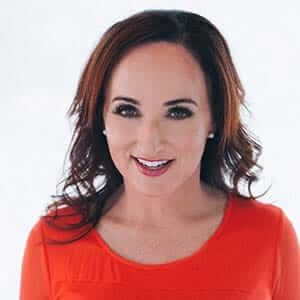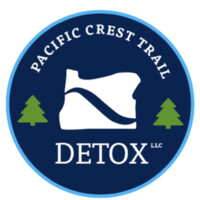
Milwaukie, Oregon, United States
Pacific Crest Trail Detox
Verified
Verified
This provider’s information has been quality-checked by Recovery.com’s Research Team for accuracy and completeness, including center verification through appropriate third-party organizations.
Joint Commission Accredited
The Joint Commission accreditation is a voluntary, objective process that evaluates and accredits healthcare organizations (like treatment centers) based on performance standards designed to improve quality and safety for patients. To be accredited means the treatment center has been found to meet the Commission's standards for quality and safety in patient care.
Provider's Policy
We accept various insurance providers including Moda, Providence, Shasta, Regents, TriCare, TriWest, MHN, and more. We can also work with out of network benefits. Call us and we'll help you run a insurance verification.
Estimated Cash Pay Rate
The cost listed here ($10,000 ) is an estimate of the cash pay price. Center pricing can vary based on program and length of stay. Contact the center for more information. Recovery.com strives for price transparency so you can make an informed decision.
Highlights from the Center
Highlights
These highlights are provided by and paid for by the center.
1-on-1 Counseling
Customized Treatment Plans
Family Owned & Operated
Medically Assisted Detox
About Pacific Crest Trail Detox
Just south of Portland, Pacific Crest Trail Detox provides quality detox care in a comfortable setting for clients to begin their substance use recovery journey. Expert staff use traditional detoxification services including both medication and clinical interventions to facilitate a smooth transition into sobriety. Pacific Crest Trail Detox utilizes an outcome measuring tool and collaborates with clinicians and the clients to adjust treatment protocols for personalized care.
Compassionate, Personalized Detox
Pacific Crest Trail Detox provides 24-hour care. Physical, psychological, and emotional health are vital to addiction recovery, so they offer a pre-admission screening to tailor treatment for every individual. Staff are immediately ready to assist clients with the highest quality of care. Pacific Crest Trail Detox provides:
- Detoxification services
- Medical and clinical interventions
- 24-hour supervised care
Medication-Assisted Treatment and Aftercare
Pacific Crest Trail Detox’s program typically lasts 8 days. Medical staff prescribes medications to manage withdrawal symptoms. They offer group therapy to begin exploring emotional and psychological challenges and learning new skills. Pacific Crest Trail Detox works with Oregon Trail Recovery to help clients transition to gender-specific residential and outpatient programs for aftercare.
Comfortable Amenities
Pacific Crest Trail Detox’s center has a boutique, home-like setting in a comfortable suburb of the Portland metropolitan area. Clients have gender-specific, double-occupancy bedrooms. For those who require more intensive care, they have a four person dorm right outside the nurse station. Pacific Crest Trail Detox offers:
- 3 nutritional meals per day and snacks that meet nutritional needs
- Clean living space, clean bathrooms to ensure safe and sober behavior
- Bedding, toiletries, household supplies, etc.
Read More

Insurance Accepted
Provider's Policy:We accept various insurance providers including Moda, Providence, Shasta, Regents, TriCare, TriWest, MHN, and more. We can also work with out of network benefits. Call us and we'll help you run a insurance verification.
Medication-Assisted Treatment
Pacific Crest Trail Detox offers medication-assisted treatment to ease withdrawal symptoms. Medications treating opioid and alcohol addictions allow clients to participate in group therapies to learn new coping skills and help them feel ready for residential or outpatient substance use treatment.
Seamless Transition to Residential or Outpatient Care
Pacific Crest Trail Detox understands that detox is the first step in the recovery process. They work closely with Oregon Trail Recovery for aftercare services. Staff collaborate with clients to determine a program suited for their needs and assists with the transition process.

Center Overview
Estimated Cash Pay Rate
Men and Women
Men and women attend treatment for addiction in a co-ed setting, going to therapy groups together to share experiences, struggles, and successes.

Treatment Focus
This center primarily treats substance use disorders, helping you stabilize, create relapse-prevention plans, and connect to compassionate support.
Treatment
Specializations
Alcohol
Using alcohol as a coping mechanism, or drinking excessively throughout the week, signals an alcohol use disorder.
Detox
Detox fully and safely removes toxic substances from the body, allowing the next steps in treatment to begin with a clean slate.
Benzodiazepines
Benzodiazepines are prescribed to treat anxiety and sleep issues. They are highly habit forming, and their abuse can cause mood changes and poor judgement.
Cocaine
Cocaine is a stimulant with euphoric effects. Agitation, muscle ticks, psychosis, and heart issues are common symptoms of cocaine abuse.
Drug Addiction
Drug addiction is the excessive and repetitive use of substances, despite harmful consequences to a person's life, health, and relationships.
Methamphetamine
Methamphetamine, or meth, increases energy, agitation, and paranoia. Long-term use can result in severe physical and mental health issues.
Opioids
Opioids produce pain-relief and euphoria, which can lead to addiction. This class of drugs includes prescribed medication and the illegal drug heroin.
Treatment Services
Detox
Detox fully and safely removes toxic substances from the body, allowing the next steps in treatment to begin with a clean slate.
Approaches
Individual Treatment
Individual care meets the needs of each patient, using personalized treatment to provide them the most relevant care and greatest chance of success.
Medical
Medical addiction treatment uses approved medications to manage withdrawals and cravings, and to treat contributing mental health conditions.
Therapies
1-on-1 Counseling
Patient and therapist meet 1-on-1 to work through difficult emotions and behavioral challenges in a personal, private setting.
Substances We Treat
Alcohol
Using alcohol as a coping mechanism, or drinking excessively throughout the week, signals an alcohol use disorder.
Benzodiazepines
Benzodiazepines are prescribed to treat anxiety and sleep issues. They are highly habit forming, and their abuse can cause mood changes and poor judgement.
Cocaine
Cocaine is a stimulant with euphoric effects. Agitation, muscle ticks, psychosis, and heart issues are common symptoms of cocaine abuse.
Drug Addiction
Drug addiction is the excessive and repetitive use of substances, despite harmful consequences to a person's life, health, and relationships.
Methamphetamine
Methamphetamine, or meth, increases energy, agitation, and paranoia. Long-term use can result in severe physical and mental health issues.
Opioids
Opioids produce pain-relief and euphoria, which can lead to addiction. This class of drugs includes prescribed medication and the illegal drug heroin.
Prescription Drugs
It's possible to abuse any drug, even prescribed ones. If you crave a medication, or regularly take it more than directed, you may have an addiction.
Synthetic Drugs
Synthetic drugs are made in a lab, unlike plant-based drugs like mushrooms. Most synthetic drugs are either stimulants or synthetic cannabinoids.
Aftercare
Experience
Personal Amenities
Amenities
Special Considerations
Healthy Meals are provided
Great food meets great treatment, with providers serving healthy meals to restore nutrition, wellbeing, and health.
Professional Staff

Benjamin Randolph
CEO
MS, CADC III, CIP, CTT, BRI – II

Jennifer Randolph
COO
CAI-II, CIP, CTP, BRI – II, CADC II
Learn more about Pacific Crest Trail Detox
Testimonial
The staff were incredibly sympathetic, responsive and easy and available to talk to. As I started to come back to myself, they chatted with me and helped me cope with the changes, encouraged my newfound excitement and helped me plan my new life.
Harrison
We love hearing about your treatment experience
Help individuals and families seeking treatment by sharing your first-hand experience with this treatment provider. Review Guidelines.
























